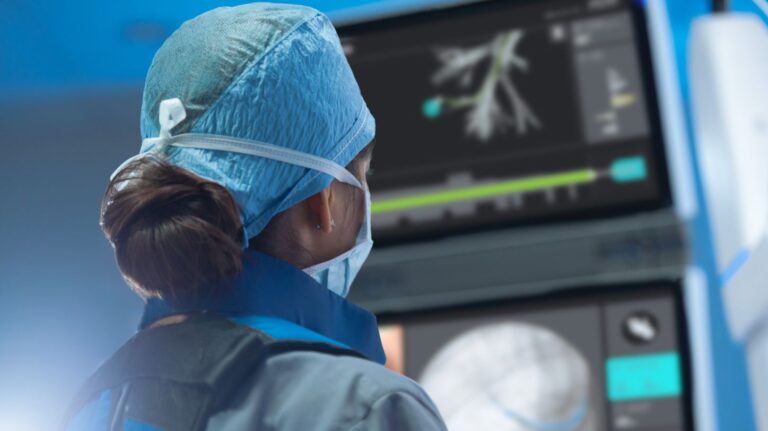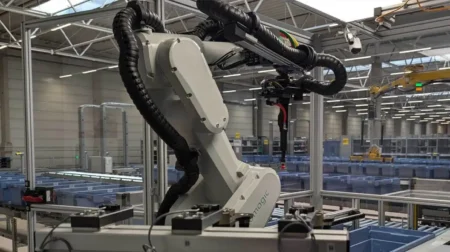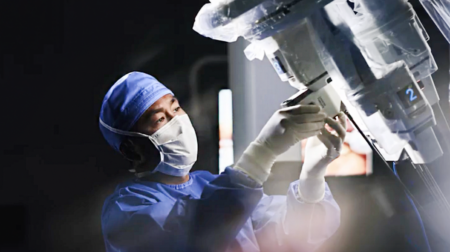The Royal College of Surgeons of England (RCS England) has announced a new three-year programme to accelerate the integration of robotics across national healthcare operations and to support both qualified surgeons and those in training to become proficient in robotic-assisted surgery (RAS).
One of the key ambitions of the scheme will be the establishment of a professional network to ‘shape the future’ of surgery through implementation and development of RAS on a national scale.
It also forms part of the professional body’s ‘Future of Surgery’ ambition, on which it published a report in 2018.
Since then, it has worked to secure funding to advance research in this area, appointed an RCS England and Health Education England Fellow and helped implement projects in the NHS and in UK universities.
Later this month, the body is set to release guidelines for the introduction of RAS to support improved collaboration between hospitals, surgeons and industry.
The new three-year collaboration will see RCS England partner with surgical robot developer Intuitive, with the two set to work on changing how surgeries are delivered and reviewing the evidence base for RAS and assessing how it can improve patient outcomes.
Another major part of the programme will see RCS England work to develop a network of experts and surgeons working with RAS.
As part of UK prime minister Rishi Sunak’s recently-announced 15-year workforce plan for the NHS, it was outlined that NHS England would work with RCS England, the accrediting surgical bodies and industry suppliers to ‘build a framework for a robotic curriculum’.
Professor Neil Mortensen, immediate past president of the Royal College of Surgeons of England, said: “Robotics is here to stay — and we need to leverage this technology and increase take-up where this supports the best quality patient care.
“When I have spoken to surgeons across the country, I have heard how RAS can help reduce the physical strain of their work. The college wants to be a driving force in the safe integration of RAS into healthcare nationally, a crucial move in recruiting and retaining surgeons.
“Robotic-assisted surgery is not part of the future of surgery; this shift is already occurring. It is the here and now, and when used appropriately, can help surgeons to conduct procedures more precisely and enable patients to recover quicker.”
An independent expert group will also regularly meet to discuss research in this area, enable better access to training in RAS, improve the quality of national data available on RAS and raise public and patient awareness.
The college has likewise developed dedicated robotics e-learning resources and incorporated robotics into its broader learning offering; in October 2022, it also accredited Intuitive’s entire global education portfolio.








